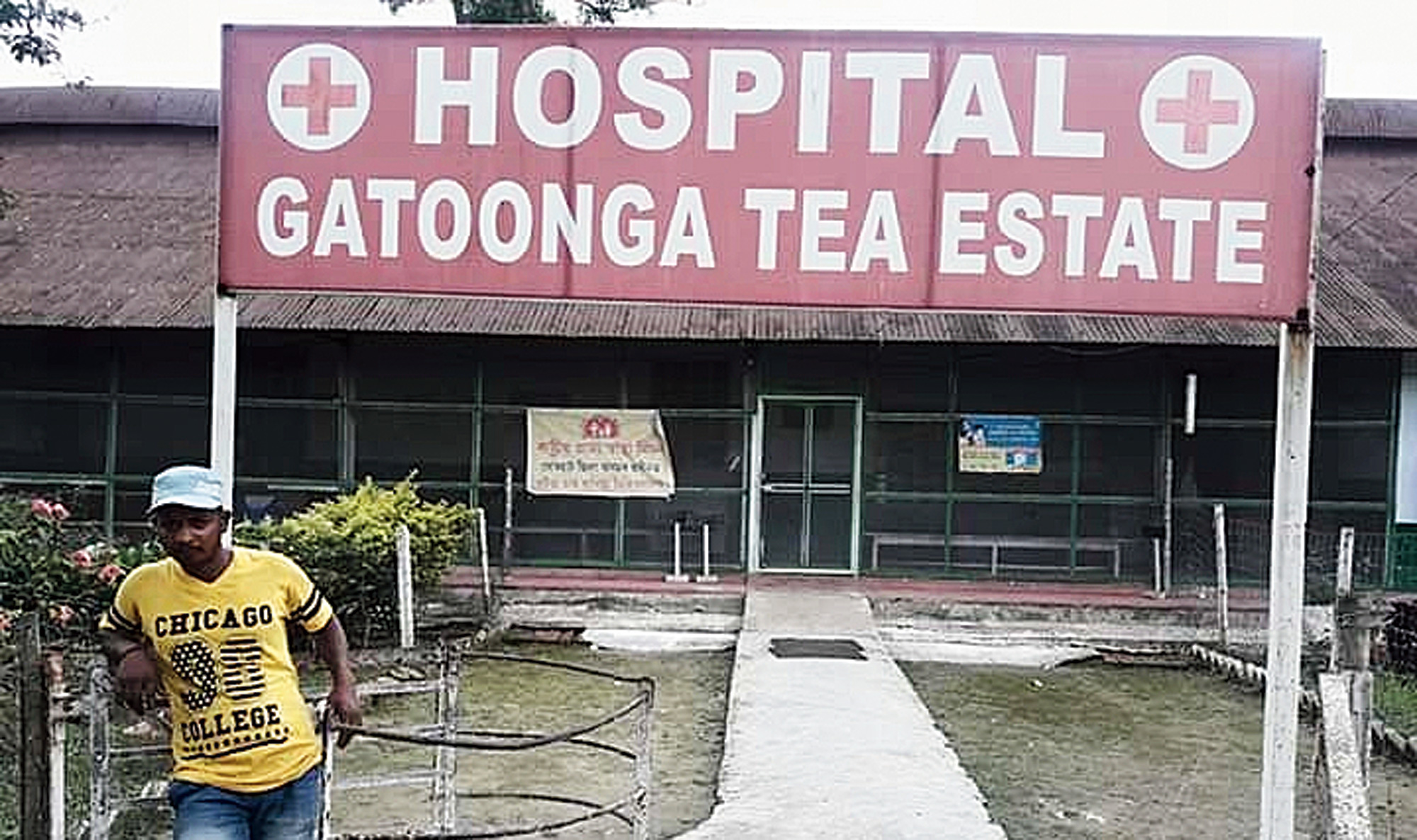For the first time, a private health institute in an Assam tea garden will take part in a district tuberculosis control programme in Upper Assam.
Gatoonga tea estate in Jorhat district, which runs the Gatoonga tea estate hospital in association with the Jorhat district TB Centre under the aegis of the state government, will open a tuberculosis (TB) microscopic and diagnostic centre on Monday where patients from the estate will get free treatment.
An additional Rs 500 will also be given to each patient for long-term treatment.
According to experts tuberculosis is a major health problem from which tea garden labourers in Upper Assam suffer the most.
Rampant consumption of tobacco and local hooch, congested living habitats of the community and their non-nutritious dietary practices help spread the disease.
The TB centre’s launch at Gatoonga tea estate hospital will also render the tea tribe community in cutting short the distance to the nearest tuberculosis centre, which is some kilometres away.
The Jorhat district tuberculosis centre has also trained a lab technician for the Gatoonga centre.
“This is for the first time that a private health institute in a tea garden will cooperate with a district TB centre to fight the menace of the disease among tea garden labourers. There are seven TB patients in Gatoonga tea estate. The centre will also cater to around 60 patients in and around Gatoonga,” said Jorhat district tuberculosis officer and nodal officer of Jorhat district tobacco control cell Bhaktimay Bhattacharyya.
If the programme at Gatoonga tea estate is successful, a similar model would be implemented across the tea gardens in Upper Assam, he added. “We are hopeful that it will meet the needs of the tuberculosis patients here. Tea labourers live in congested quarters and this causes infections,” he said.
According to a 2016 survey by the Dibrugarh District TB Control Programme, the district had reported the highest number of tuberculosis cases among all districts in Assam owing to its proximity with tea gardens and its labourer community.
The survey said temporary tea labourers, compared to their permanent counterparts in organised and unorganised tea gardens in the district, were reported to have the highest number of tuberculosis cases.
Along with Dibrugarh, Jorhat and Tinsukia districts were reporting an almost equivalent number increase in tuberculosis cases.
Temporary tea labourers at times find it difficult to get access to directly-observed treatment because of the remote location of the tea gardens, the survey said.











